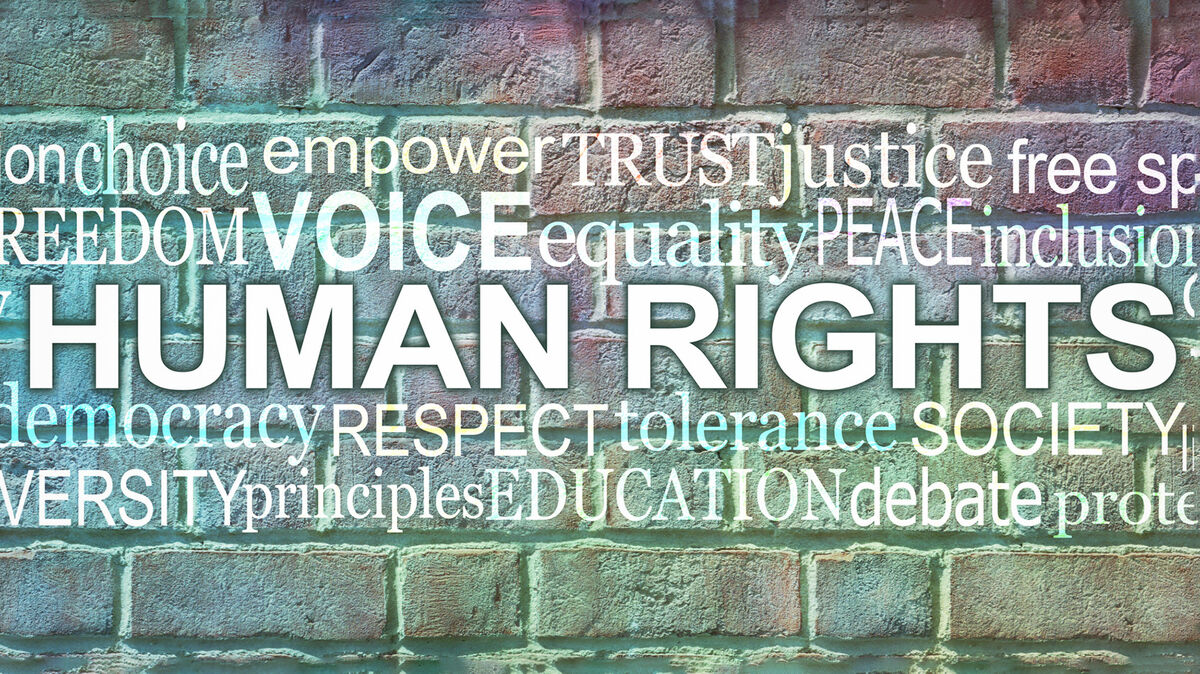
The concept of rights-based ethics is that there are some rights, both positive and negative, that all humans have based only on the fact that they are human. These rights can be natural or conventional. Natural rights are those that are inherent while conventional rights are those created by humans and that reflect society's values.
Rights-Based Ethics System: Examples
The term right can be defined as "a justified claim that individuals and groups can make upon other individuals or upon society." Rights-based ethics means that ethical behavior must uphold the rights of people, such as civil rights within a democracy. Rights can be legal in nature, or they can pertain to morality or human rights.
- The right to life
- The right to liberty
- The right to pursue happiness
- The right to a jury trial
- The right to a lawyer
- The right to freely practice a religion of choice
- The right to express ideas or opinions with freedom as an individual
- The right to come together and meet in order to achieve goals
- The right to be informed of what law has been broken if arrested
- The right to call witnesses to speak on one's behalf if accused of a crime
- The right of a person to be treated with respect and dignity
- The right to freely live and travel within the country
- The right to work
- The right to marry
- The right to bear children
- The right to an education
- The right to join any peaceful parties or groups of choice
- The right to be free from slavery
- The right to not be tortured
- The right to be treated as equal to others
- The right to be considered to be innocent until proven guilty
- The right to personal privacy
- The right to own property
Actions that fail to respect the rights of individuals represent unethical behavior.
Understanding Rights-Based Ethics
The United States is an example of a country founded upon a rights-based approach to ethics, in which human beings are believed to have certain unalienable rights, which means those rights cannot be taken away or interfered with. John Locke was one of the primary supporters of this concept, as it takes the perspective of what the ideal world looks like and creates a rights system based upon those ideas.
- The United States of America's Bill of Rights is a document that epitomizes the type of rights that are embraced by a rights-based ethical approach.
- The United Nations' Universal Declaration of Human Rights is another document that embraces and exhibits the values of a rights-based ethical system.
- In healthcare, The Code of Medical Ethics of the American Medical Association is an example of rights-based ethics. It defines patient rights and the duty of physicians to respect them.
Rights-Based Ethics vs. Utilitarianism
Utilitarian ethics is very different from rights-based ethics; some say the two approaches are opposites. Utilitarian ethics are based on the maximization of "good outcomes" and minimization of "bad outcomes." In utilitarianism, the ethical choice is the one that benefits the most people (or harms the fewest). This approach is not consistent with rights-based ethics, as utilitarian decisions would sacrifice the rights of the minority to protect the majority.
Further Exploring Rights and Freedoms
Now that you have reviewed some examples that help show exactly what a rights-based ethics system is like, take the time to learn more about related concepts. Start by exploring the key difference between civil liberties and civil rights. From there, consider examples of morals in society.